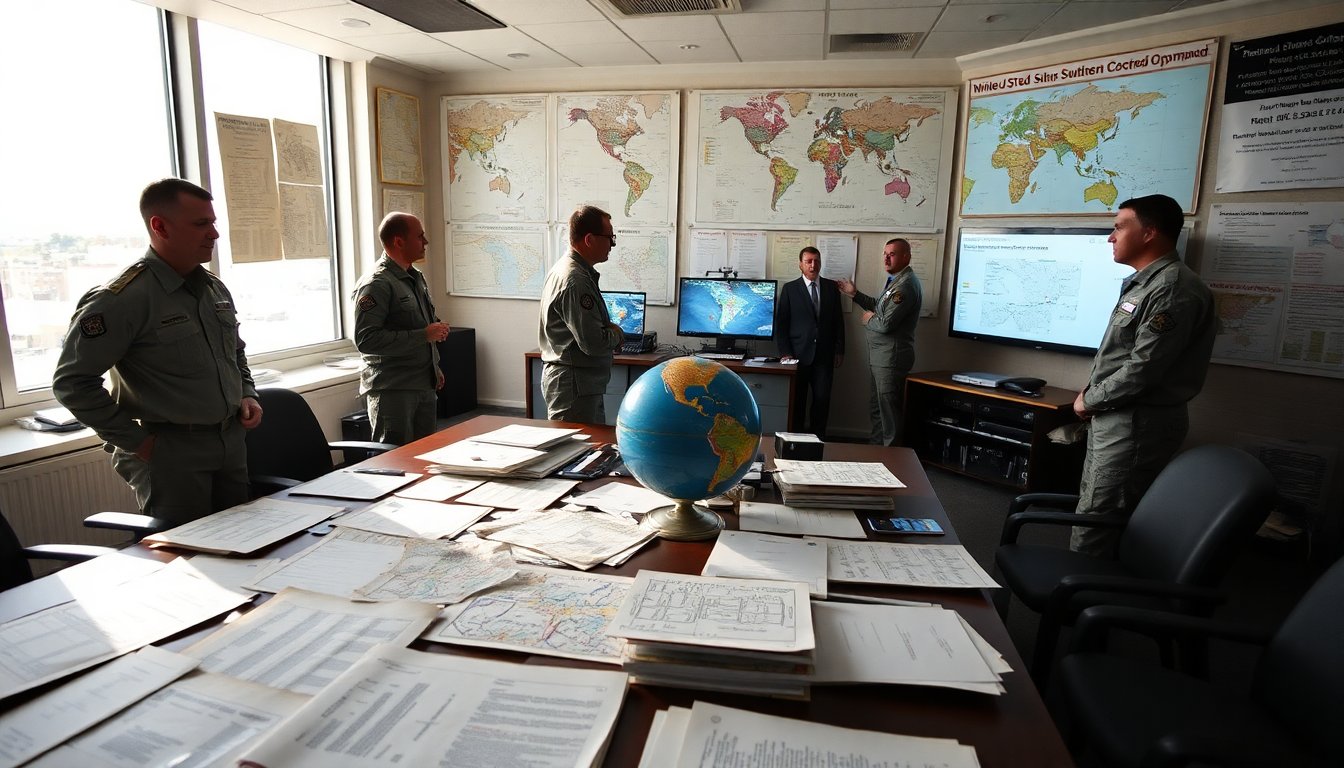Table of Contents
The military landscape surrounding the United States’ drug enforcement efforts is shifting as Adm. Alvin Holsey announces his departure from the role of head of U.S. Southern Command. His time in this pivotal position lasted less than a year, contrasting sharply with the typical three-year tenure expected for leaders in this command.
Adm. Holsey’s resignation occurs amid complex challenges related to drug trafficking and regional stability. His leadership was viewed as vital in the fight against drug cartels and organized crime in the southern hemisphere, particularly in areas significantly affected by the drug trade.
Background of Adm. Alvin Holsey’s leadership
Upon taking command of U.S. Southern Command, Adm. Holsey was responsible for overseeing military operations across South and Central America, with a focus on combating drug-related violence and trafficking. His efforts aimed to enhance security and strengthen partnerships with regional allies. However, the brief duration of his command raises concerns regarding the continuity and effectiveness of strategic initiatives.
Challenges faced during tenure
Throughout his short command, Adm. Holsey faced numerous obstacles that tested his leadership. The escalating violence linked to drug trafficking organizations, particularly in countries like Colombia and Mexico, complicated stabilization efforts in the region. A coordinated approach involving both military and diplomatic channels became increasingly necessary.
Furthermore, the evolving nature of drug cartels, which often adapt quickly to law enforcement tactics, posed a significant challenge. The complex networks of these organizations not only threatened the United States but also destabilized local governments, making Holsey’s role critical in fostering international cooperation.
Implications of his departure
The announcement of Adm. Holsey’s exit from U.S. Southern Command has ignited discussions about the implications for ongoing military strategies. Leadership transitions frequently lead to shifts in focus and priorities, potentially impacting the U.S. drug war strategy.
Future leadership considerations
As the military prepares for a new leader, questions arise regarding the direction and continuity of operations. The successor will need to acclimate quickly to the challenges at hand and build upon the groundwork laid during Holsey’s brief tenure. This transition could affect not only military operations but also diplomatic relations with key partners in the fight against drug trafficking.
The importance of maintaining a steady course in addressing drug-related issues cannot be overstated. A fresh perspective could offer new strategies but may also disrupt existing alliances and operations that have been painstakingly developed.
The dynamic nature of military leadership
Adm. Alvin Holsey’s resignation from the U.S. Southern Command underscores the dynamic and often tumultuous nature of military leadership in the context of the drug war. His tenure, marked by significant challenges but limited time for implementation, highlights the need for a sustained commitment to addressing drug trafficking and enhancing regional security.
As the search for his successor begins, the military and policymakers must carefully consider the implications of this leadership change. The ongoing battle against drug cartels remains a critical issue, and the next leader will play a crucial role in shaping the effectiveness of U.S. efforts in the region.


